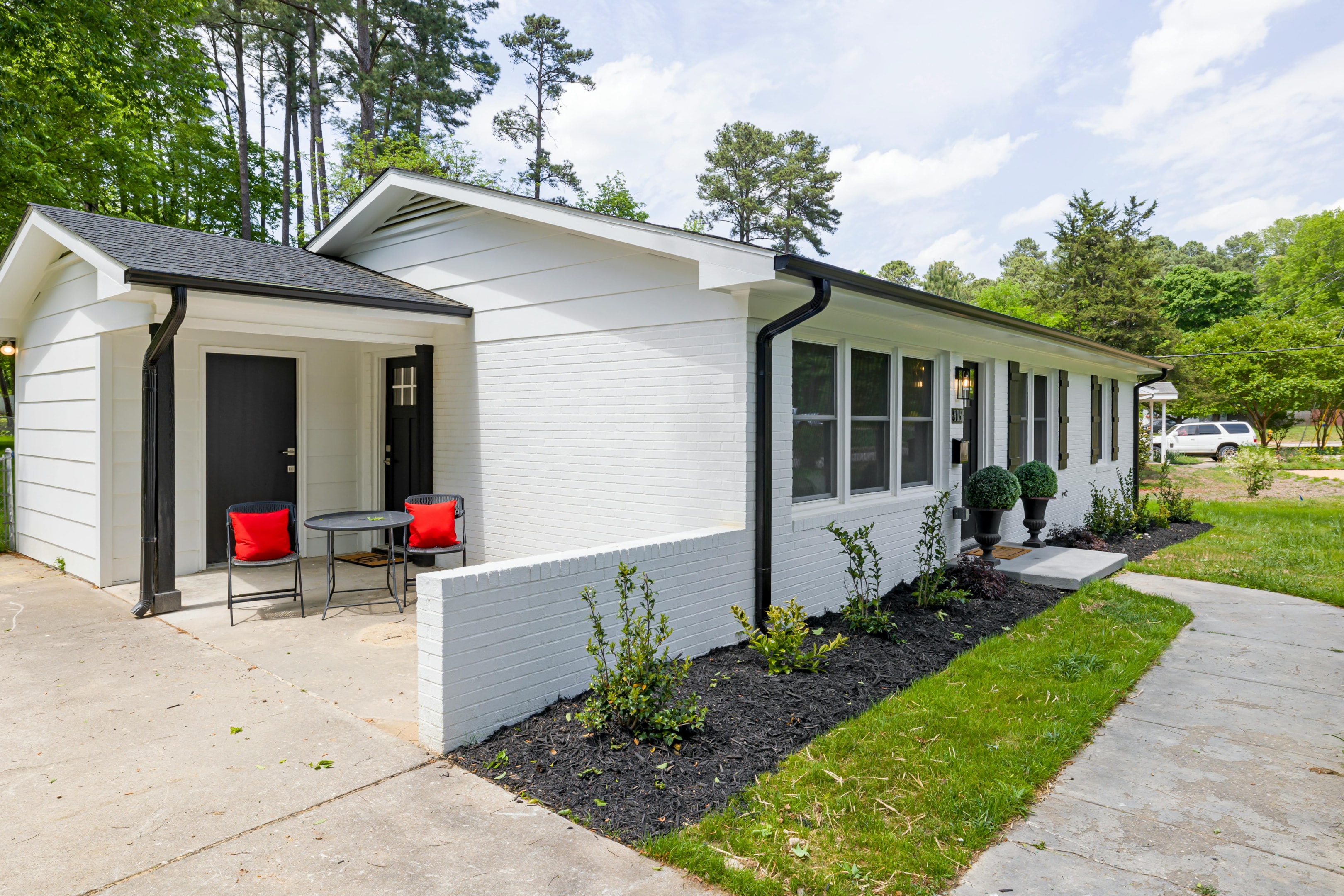Real Estate Investing in Michigan: The Playbook for Massive ROI
Looking for a market that serves cash flow and appreciation on the same plate? Real estate investing in Michigan stands out as an attractive market for investors, offering profitable opportunities with a low entry point and high yields. With Midwestern affordability, coastal-town tourism dollars, and a tech-powered jobs engine, Michigan is positioned as one of the most attractive markets in the country for real estate investment. From Detroit's startup scene to Traverse City's beach-town Airbnb boom, opportunities are as diverse as the state's famous four seasons. Let's unpack everything you need—data, tactics, and local secrets—to turn Great-Lakes deals into great gains.

Michigan by the Numbers: Why Investors Are Flocking North
Manufacturing 2.0—EV, Biotech & Logistics Job Growth
Ford's $3.5 B Battery Park, GM's Factory Zero, and Pfizer's Kalamazoo expansion have pumped 40 000+ high-paying jobs into Michigan since 2022, fueling the state's strong economy. Logistics giants follow, staking warehouse space along I-94 and I-75. Translation for real estate? There is a steady demand for rentals near these job corridors.
Demographic Tailwinds: Millennials & Midwest Migration
Remote-work millennials priced out of coastal metros are landing in Grand Rapids and Lansing for 40% lower housing costs as opposed to Detroit. The U-Haul Growth Index ranked Michigan #6 in one-way truck rentals for 2024, signaling sustained inbound migration. This migration of millennials and new residents is creating consistent demand for rental properties in these cities.
Regional Snapshot: Metro-by-Metro Breakdown
Detroit's Urban Revival—From Motor City to Mobility Hub
Median price still sits under $100K but has risen 12 % year over year. Detroit offers a range of investment property options, from single-family homes to multifamily units, appealing to various investor strategies. Downtown tech hubs—Microsoft Garage, Google's mobility campus—pull young professionals into Corktown and Brush Park.
Grand Rapids & The "Medical Mile"
Spectrum Health, Michigan State University's research center, and a booming craft-beer scene drive population growth in this area. Vacancy sits < 3 %, with rents outpacing Midwest averages. The demand for rental houses in Grand Rapids is fueled by the city's growing population and expanding job market. To learn more about what trends to look for when evaluating where to invest, see Real Estate Investing Today: Strategies, Trends, and Opportunities.
Greater Lansing—Government Jobs & Student Rentals
Michigan State's 50 000-student body plus state-capitol stability make Lansing a BRRRR paradise: steady tenants, modest prices, and strong refinance appraisals. Lansing's relatively low purchase price makes it especially attractive for investors seeking strong returns, as the initial investment is more affordable compared to other markets.
West-Coast Gems: Muskegon, Holland & Traverse City
Lake Michigan shoreline towns enjoy 80 % occupancy on short term rentals from May to October. Regulatory landscape varies—Holland friendly, Traverse City restrictive—so always verify municipal caps. Vacation homes in these towns have become increasingly popular, both as seasonal retreats and as attractive investment opportunities due to rising demand and appreciation in value.

Market Fundamentals & Key Metrics
Seasonality Hacks: Buying Snow-Cheap, Selling Sun-High
Michigan list prices typically dip 5–8 % December–February, creating an opportunity for investors looking to flip houses to buy at lower prices. Contractors discount labor up to 15 % to fill winter calendars. Flip by Memorial Day, when buyers emerge like spring tulips.
Property Evaluation and Due Diligence: Your Michigan Checklist
For real estate investors eyeing Michigan's dynamic market, a rigorous property evaluation and due diligence process is non-negotiable. Whether your investment goals focus on cash flow, appreciation, or a mix of both, a detailed checklist ensures you're buying properties that deliver on your expectations—not just in theory, but in practice. From the first walk-through to the final closing, smart investors know that every step of due diligence protects your bottom line and sets the stage for long-term success in Michigan real estate.
Inspections, Title, and Environmental Red Flags
Before committing to any property, schedule professional inspections to uncover hidden issues like foundation cracks, outdated electrical systems, or water damage that could reduce property value and rental income. Check for environmental hazards common in Michigan, such as lead paint or asbestos. Ensure a clean title by ordering a full search to confirm ownership and identify any liens or unpaid taxes. Be cautious of environmental red flags like proximity to industrial sites, flood zones, or busy highways, which can affect property value and tenant appeal. Addressing these factors early helps protect your investment and profitability.
Neighborhood Analysis: Crime, Schools & Walkability
Location is everything in real estate, and a thorough neighborhood analysis can make or break your investment. Investors should check local crime rates, school quality, and walkability—factors that influence tenant quality, rental income, and property appreciation. In Northern Michigan, safe, walkable neighborhoods near good schools see the strongest growth, helping maximize occupancy and returns on rental properties.
Zoning, Permits & Local Ordinance Pitfalls
Zoning and local regulations can be complex for real estate investors in Michigan. Before purchasing, confirm the property's zoning aligns with your investment plans—whether for single-family rentals, multifamily conversions, or short-term rentals near Traverse City or ski resorts. Ensure all renovations were properly permitted and meet current codes to avoid fines or costly fixes. Be aware of local rules, especially in cities like Traverse City, which may limit short-term rental permits and affect your rental income. Thoroughly understanding these regulations helps keep your investments profitable and compliant.

Affordable Investment Opportunities: Where Value Meets Potential
Michigan's real estate market is a goldmine for investors seeking affordable prices and strong upside potential. With a diverse range of cities and neighborhoods catering to different investment goals, the state offers real estate investors the chance to secure profitable investments without breaking the bank. Whether you're looking for steady cash flow, long-term appreciation, or a mix of both, Michigan's affordable investment opportunities provide a solid foundation for building wealth.
Hidden Gems: Up-and-Coming Towns and Neighborhoods
Savvy real estate investors find the best deals in Michigan's emerging towns and overlooked neighborhoods, where affordable property prices meet rising demand. Grand Rapids thrives with its arts scene and diverse industries driving job growth and rentals. Ann Arbor, home to a major Michigan campus and tech sector, attracts renters and buyers with its cultural energy and economic stability. Areas near new infrastructure projects often see rapid appreciation, letting investors secure affordable properties now and benefit from Michigan's long-term growth and rental demand.
Winning Strategies for Every Michigan Market
Step-by-Step BRRRR Calculator Walk-Through Example
Buy: $100 K
Rehab: $30 K
All-in: $130 K
ARV: $190 K
Refi (75 %): $142.5 K → $12.5 K tax-free cash back.
Fix-and-Flip in Emerging Downtown Districts
Kalamazoo's Edison and Grand Rapids' West Side see 13 % year over year appreciation. Cosmetic flip budgets average $25/ft; full-gut $50/ft. Target 70 % minus repairs, but accept 75 % in ultra-hot pockets. Market knowledge and timing are essential to secure a good deal when flipping properties, as acting quickly in a competitive market can make a significant difference in your returns. To learn more about the details of fix-and-flips, read What Type of Properties are Best for Flipping Houses Successfully?.
Cosmetic vs. Full-Gut Rehab Budget Examples
Scope | Cost / Sq Ft | Time | Ideal Exit |
|---|---|---|---|
Paint + Floors | $18–22 | 30–45 d | FHA buyers |
Kitchen/Bath Reno | $30–35 | 60–75 d | FHA/VA |
Full Gut | $45–55 | 90–120 d | Conventional |
Short-Term Rentals on the "Fresh Coast"
Occupancy can hit 85% in summer, 55% during shoulder seasons, and 35% in winter—mitigate with monthly snow-bird rentals. Peak seasons, especially summer and major local events, drive higher occupancy and rental rates in these vacation towns. ADR ranges $250–$450 for 3-bed lake-view homes. In winter, proximity to popular ski hills can further increase the appeal and rental income potential of properties, while ski-out properties often command a premium for investors targeting ski resort markets.
Deal-Finding Tactics Nobody Else Is Using
Driving for Dollars + Public Records Stack
Layer Detroit code-violation list with USPS vacancy data. Response rates jump from 3 % to 7 % when you mail stacked-distress owners. To maximize your results, use data-driven approaches to identify neighborhoods with strong future growth potential, ensuring your investments align with long-term market trends. To learn more about driving for dollars and how it can benefit your marketing, see Driving for Dollars: The Ultimate Guide to Finding Off-Market Real Estate Leads.

Networking Playbook: REIAs, Meetups & Michigan Facebook Groups
Top groups to join in Michigan to increase your networking include "Michigan Wholesale Real Estate Investors," "Detroit REI Network," and GRAR's monthly investor brunch. Bring case studies, not business cards. If you are interested in Michigan real estate, consider joining these networking groups to connect with like-minded individuals and explore new opportunities. Read Mastering Real Estate Networking: Successful Strategies for Success to learn more tips about expanding your network.
Rehab & Construction—Building for Four True Seasons
Michigan's diverse real estate landscape offers investors a unique blend of opportunities, from urban revitalization projects to serene waterfront vacation rentals. Whether you're aiming to flip houses for quick profits or build a long-term rental portfolio, the state's consistent growth and thriving economy provide a solid foundation for success. By understanding local market dynamics and leveraging tailored investment strategies, real estate investing in Michigan can yield impressive returns and sustainable cash flow.
Your Michigan Power Team
Investor-Savvy Agents, Attorneys & CPAs; Contractors, Handymen & Seasonal Labor Hacks
Look for NAR "RCE" certified agents and attorneys versed in land-contract forfeitures. Your CPA should handle Michigan Commercial Activity Tax filings and track Brownfield reimbursements to maximize tax benefits. For tips on building these valuable connections and growing your team, see Building Real Estate Investment Team: The Ultimate Guide for Serious Investors.
For rehab projects, one strong tactic is to leverage seasonal labor strategies: use college off-season workers for summer rehab blitzes and offer winter interior work to lock in crews at a 10% discount. This approach helps control costs and ensures timely project completion.
Conclusion: Plant Your Flag in Michigan's Next Growth Wave
From Detroit's affordable duplexes to Traverse City's beachfront bungalows, real estate investing in Michigan delivers both cash flow and upside potential. Waterfront properties, in particular, are in high demand and offer strong opportunities for appreciation and rental income, especially in sought-after areas like Lake Michigan. With Michigan's diverse range of markets—from urban centers to charming vacation towns—investors can find options that fit various investment strategies and goals. By leveraging data-driven buying decisions, mastering four-season rehab techniques, and assembling a Michigan-fluent power team, you'll be well-equipped to ride the state's ongoing renaissance straight to the bank. Ready to lace up your investing boots? The Mitten State is wide open—go stake your claim.